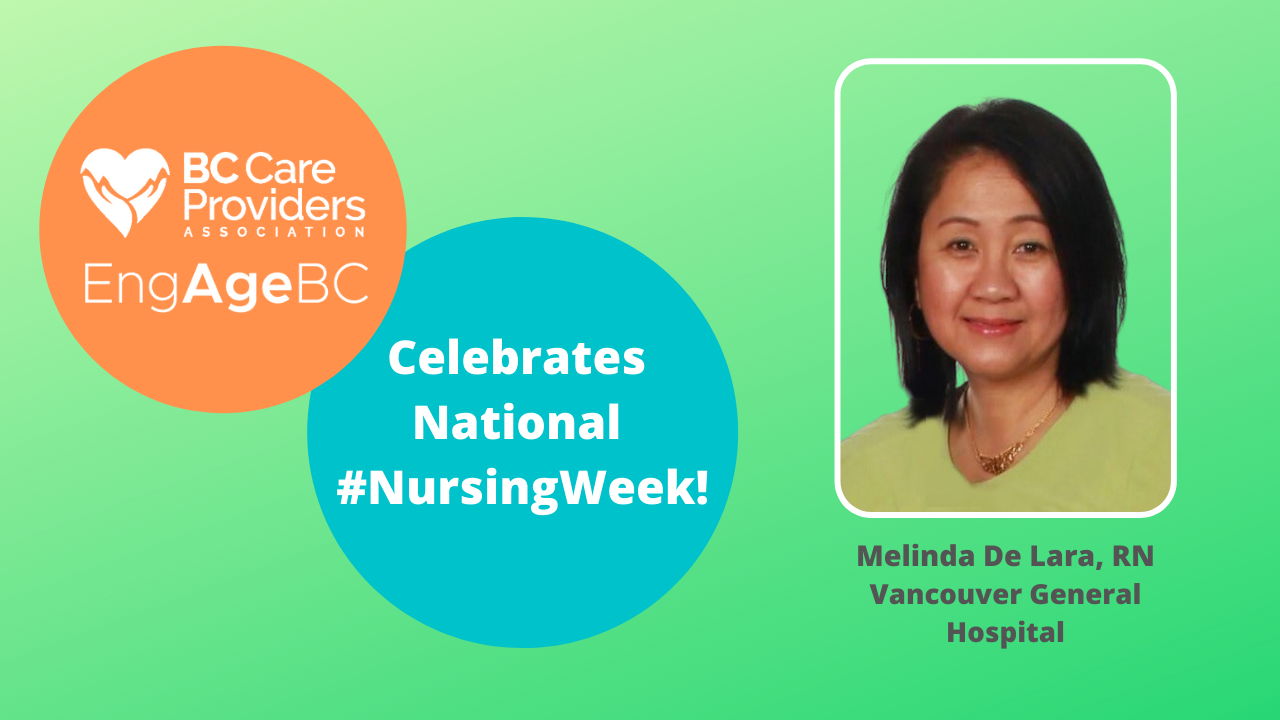On this National Nursing Week, we’d like to recognize internationally educated nurses (IENs) who have come to Canada to help support seniors across the country. For many IENs, the process to practice nursing in the country is long and challenging, especially given the many barriers they face when coming to Canada.
After obtaining her nursing education at Centro Escolar University Manila, Melinda De Lara came to Canada in 1980 as a twenty-one-year-old. Her eldest sister, who was working as a nurse in Newfoundland and planning to sponsor their family to immigrate to Canada at the time, had mentioned the shortage of nurses in the country back in the 1970s. At that point, it was her dream to also become a nurse in Canada.
But when Melinda arrived in Vancouver, she couldn’t practice or work as a nurse. For her first six years in the country, she worked as a care aide and then as a graduate nurse in various long-term care (LTC) homes across the lower mainland.
“It was hard for me to start practicing nursing in Canada because it was a bit of a culture shock, my English was limited, and I didn’t have any money. It was a long six years before I could fully become a registered nurse (RN).”
In those six years, she also took refresher courses and at one point went back to the Philippines to take the licensing exam there. After that, she returned to Canada to take the national licensing exam and passed successfully in 1983. She was thrilled to finally practice as a nurse. In her first four years in the role, she helped seniors working as a graduate nurse at South Granville Park Lodge and Icelandic Care Home.
Since becoming a fully registered RN in 1987, she has been working in Acute Medicine at Vancouver General Hospital (VGH). Although she officially retired in May 2020, and despite the difficult process of becoming a nurse as an immigrant and the rigorous nature of being an RN, Melinda still works casually at VGH.
What encourages Melinda to keep practicing beyond her official retirement is her life’s purpose to help those who need it the most.
“Even if it’s hard work, it’s empowering to know that you did something good for others. When you see others who are struggling, it’s hard to not empathize and want to do something to help.”
Looking back, her time at LTCs was a memorable experience that helped shape her future role as a nurse. Specifically, it helped her to become more patient and compassionate and first exposed her to diverse cultures.
“As a nurse, you see and understand all different kinds and walks of life.” For her, that’s exactly what inspires her to keep going and doing meaningful work to help others.





